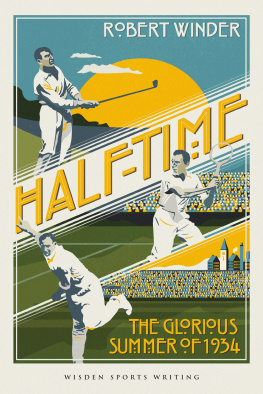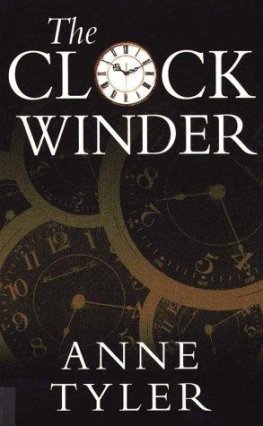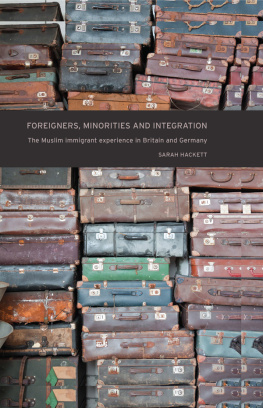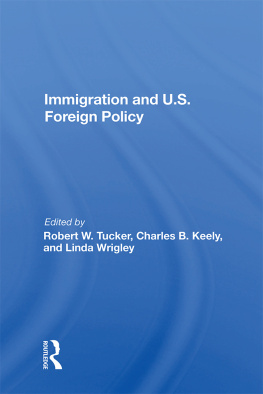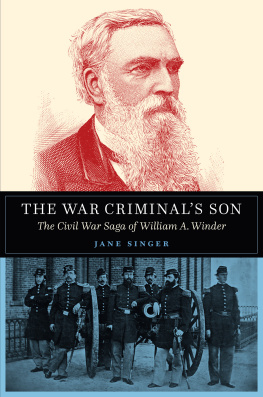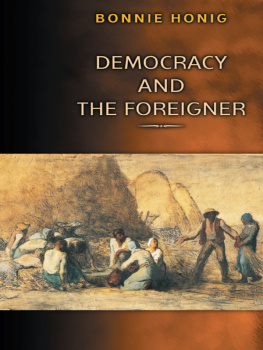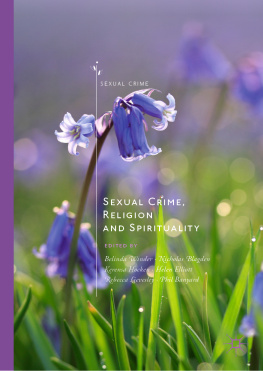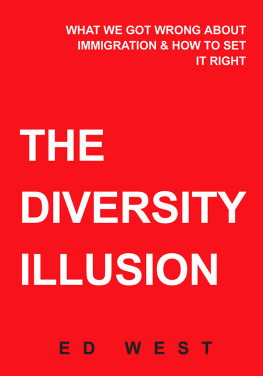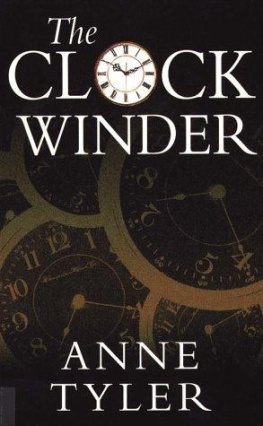Robert Winder - Bloody Foreigners: The Story of Immigration to Britain
Here you can read online Robert Winder - Bloody Foreigners: The Story of Immigration to Britain full text of the book (entire story) in english for free. Download pdf and epub, get meaning, cover and reviews about this ebook. year: 2010, publisher: Abacus, genre: Politics. Description of the work, (preface) as well as reviews are available. Best literature library LitArk.com created for fans of good reading and offers a wide selection of genres:
Romance novel
Science fiction
Adventure
Detective
Science
History
Home and family
Prose
Art
Politics
Computer
Non-fiction
Religion
Business
Children
Humor
Choose a favorite category and find really read worthwhile books. Enjoy immersion in the world of imagination, feel the emotions of the characters or learn something new for yourself, make an fascinating discovery.

- Book:Bloody Foreigners: The Story of Immigration to Britain
- Author:
- Publisher:Abacus
- Genre:
- Year:2010
- Rating:3 / 5
- Favourites:Add to favourites
- Your mark:
- 60
- 1
- 2
- 3
- 4
- 5
Bloody Foreigners: The Story of Immigration to Britain: summary, description and annotation
We offer to read an annotation, description, summary or preface (depends on what the author of the book "Bloody Foreigners: The Story of Immigration to Britain" wrote himself). If you haven't found the necessary information about the book — write in the comments, we will try to find it.
Bloody Foreigners: The Story of Immigration to Britain — read online for free the complete book (whole text) full work
Below is the text of the book, divided by pages. System saving the place of the last page read, allows you to conveniently read the book "Bloody Foreigners: The Story of Immigration to Britain" online for free, without having to search again every time where you left off. Put a bookmark, and you can go to the page where you finished reading at any time.
Font size:
Interval:
Bookmark:
Robert Winder has been literary editor of the Independent and deputy editor of Granta. He is a regular contributor to the Independent, the Observer and the New Statesman. He is also the author of Hell for Leather: A Modern Cricket Journey and two novels, No Admission and The Marriage of Time and Convenience.
Praise for Bloody Foreigners:
This is not only a timely and important book, but also one that is supremely readable, shot through with understated humour and irony The Times
A humane and sophisticated study that goes a long way towards defining what we are as a nation Independent
This is a topical, formidable and engaging book which will have and deserves to have many readers Robert Winder has tossed an elegant and compulsively warm-hearted grenade into a usually ugly and cruel debate his case is well made. He has a thousand stories to tell and tells them well Sunday Times
This useful and readable book should provoke many readers to reconsider their picture of Britishness, and to realise how much of our enterprise and tolerance has originated from the interplay with immigrants who were once seen as dangerously foreign Guardian
Robert Winders totally absorbing and revelatory book could not be more timely astutely punctures many balloons of false national pride Daily Mail
[A] splendidly researched and subtle history of immigration Observer
Robert Winder, in twenty-five chapters of swift prose and bold observation, tells a story for the times History Today
In his elegant and timely study Winder has culled a wide array of not easily accessible scholarship on the history of different minority groups in this country and from it constructed a portrait of the nation that should be required reading for those toxic spewers at Migration Watch New Statesman
[Winder] has a good eye for the telling anecdote and there is much to intrigue and delight Spectator
Winders book is timely. It is a lively and ably constructed chronicle, a synoptic overview based on good historical sources, with a strong and welcome contemporary spin. Perhaps a copy should be sent to every leader of the British National Party Scotland on Sunday
People on every side in the immigration debate will find their complacent assumptions shaken by this brilliantly argued, well-researched and challenging work This is a deeply optimistic book, celebrating a part of the British character and experience that is too often ignored Literary Review
A coherent and readable narrative account. What [Winder] offers in effect is a different kind of British history: history seen through the eyes of those who have stepped ashore in an alien Britain, and so transformed their own lives and that of their adoptive country. It is a story that could be replicated in many countries. But Winders book is especially important for contemporary Britain Times Literary Supplement
In a very attractive way, it brings immigration and immigrants to life with an abundance of stories of the personal experiences, good and bad, of immigrants in Britain, with some remarkable and moving examples going back to the Middle Ages Evening Standard
Winder documents each wave of immigration with clarity and humour. Immigration, he argues, is the sincerest form of flattery Few put the case for immigration as persuasively He demonstrates that without it Britain would be much impoverished and much less interesting Scottish Sunday Herald
Deftly written a highly readable contribution that charts the forging of a multicultural nation Irish Examiner
Ultimately, this is not the story of immigration to Britain; it is the story of Britain itself Times Educational Supplement
Published by Hachette Digital
ISBN: 978-0-748-12396-4
All characters and events in this publication, other than those clearly in the public
domain, are fictitious and any resemblance to real persons, living or dead, is purely
coincidental.
Copyright Robert Winder 2004
All rights reserved. No part of this publication may be reproduced, stored in a
retrieval system, or transmitted, in any form or by any means, without the prior
permission in writing of the publisher.
Hachette Digital
Little, Brown Book Group
100 Victoria Embankment
London, EC4Y 0DY
www.hachette.co.uk
To Hermione, Luke and Kit
P. G. Wodehouse once made fun of a writer by asking why he had given such a lengthy explanation of his book and its purposes, when a simple apology would have sufficed. In this case, however, I can assert without embarrassment that the original idea was a splendid one, since it was not mine. Richard Beswick, of Little, Brown, had for years nursed the impulse to produce a book that would present immigration not as a subject or issue (let alone as a problem) but as a narrative, a story, an adventure. So the book fell into my lap more or less fully formed: all I had to do was join the dots of his brainwave.
In the event I was slow on the uptake; I stared warily at the gift horses mouth, sizing up its considerable teeth. It could hardly be a story of the sort you might find in a novel: there wasnt a cast of characters or an individual consciousness (apart from mine) that could learn something as it went along. It would be false, moreover, to propose individual figures as representative of any one ethnic or national identity, since these are too numerous and tangled already. There is a bias, in most sociology, in favour of big numbers and significant categories. But the differences between people may be more telling than the similarities. Can a rich merchant from Portugal be lumped in with a destitute peasant from Russia, just because they both happen to be Jewish? Can a Hindu represent the Indian diaspora, rather than a Sikh, a Muslim, a Buddhist or a Christian? How many nationalities can be squeezed into a single term such as Asian? Is anyone, in short, typical? A book that straddled so many hundreds of years, and so many millions of people, would have to skate over such distinctions.
I hesitated. But in my hesitation I leafed through histories of Britain, and was struck by the extent to which the topic has been overlooked. Time and again I came across delineations of the national character which failed to view it as the product of a cosmopolitan ancestry. They preferred to see it as something solidly rooted in the soil and climate, as native and natural as an oak or a hawthorn; or else as something geological, a stratum of rock (usually granite) which could be chiselled but not changed. I read accounts of the eighteenth century in which slavery was barely mentioned, and surveys of modern times in which immigration cropped up almost in passing, as an inconvenient side-issue that had little to do with the central thrust of national life. The truth that Britain has absorbed foreign genes since it was first discovered by continental wanderers really did seem to have been sidelined. I resolved to take a closer look.
Any anxieties about my own eligibility softened on the grounds that if this wasnt my story to tell, then whose was it? True, I wasnt an immigrant. But I soon saw that we are all immigrants: it simply depends how far back you go. And if personal experience is the criterion, it would not be enough for the author to be an immigrant. He or she would have to be part Roman, part German, part Danish, part French, part Jewish, part Irish, part Caribbean, part African, part Indian, part Chinese, part Greek, and part every other nationality you can think of. No one person could claim to represent the ethnic or religious strands that twist their way through this story. I was, I told myself, at least as unqualified as anyone else. I took heart from a line by Oscar Wilde: The one duty we owe to history, he said, is to rewrite it. History is not, as has been said, the past it is the story we tell ourselves about the past, what we have instead of the past.
Font size:
Interval:
Bookmark:
Similar books «Bloody Foreigners: The Story of Immigration to Britain»
Look at similar books to Bloody Foreigners: The Story of Immigration to Britain. We have selected literature similar in name and meaning in the hope of providing readers with more options to find new, interesting, not yet read works.
Discussion, reviews of the book Bloody Foreigners: The Story of Immigration to Britain and just readers' own opinions. Leave your comments, write what you think about the work, its meaning or the main characters. Specify what exactly you liked and what you didn't like, and why you think so.

